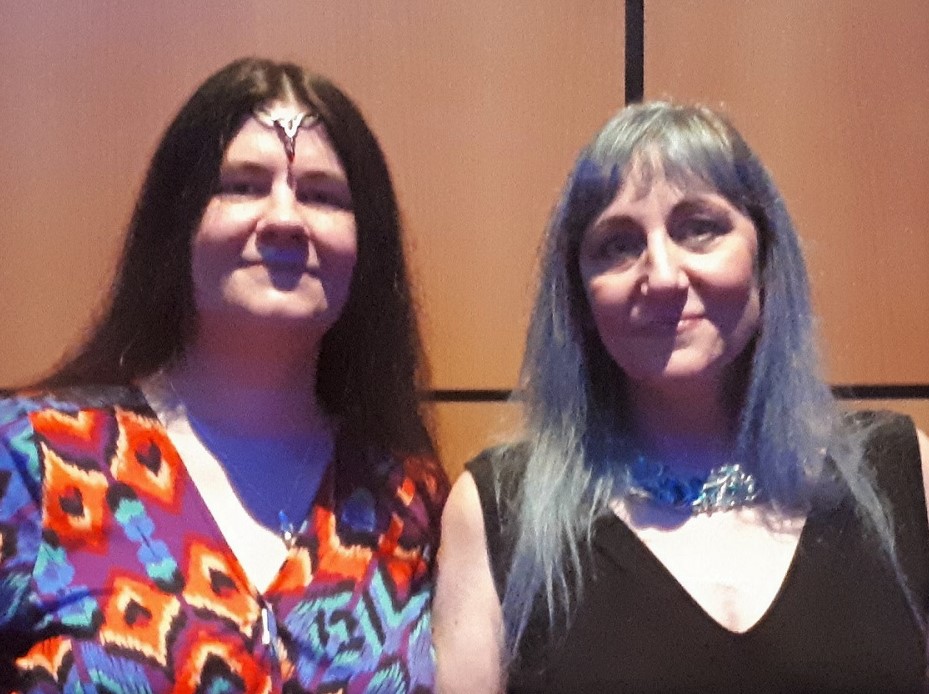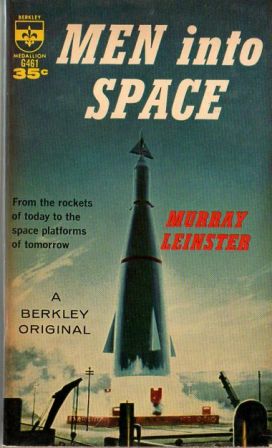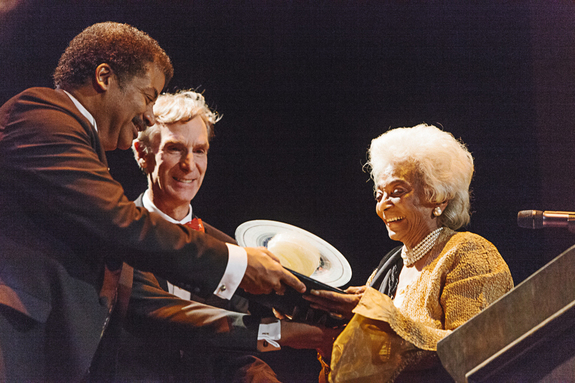(1) ‘WONDERLAND’ SF DOCUMENTARY. [Item by Ersatz Culture.] The UK free-to-air channel Sky Arts is showing the first of a four-part documentary series Wonderland: Science Fiction in the Atomic Age tonight at 8pm UK time. And it will air again on Saturday April 5 at 3:40 p.m.

Unusually, it looks to be focused on literary SF; the episode descriptions only mention film/TV/etc for the final episode. The trailer shows talking heads clips from a number of well-known UK-based critics, academics and authors, including John Clute, Farah Mendlesohn, Adam Roberts and Tade Thompson.
A description of the four episodes as taken from the Fine Books & Collections website:
- Episode I – Mary Shelley to Isaac Asimov (April 3)
The creation and detonation of two atomic bombs developed by science fiction reading scientists is followed by an exploration of early science fiction writers including Mary Shelley, Jules Verne, and H.G. Wells. It also features Kurt Vonnegut’s experience of being firebombed in 1944 in a prison in Dresden (Slaughterhouse Five) and J.G. Ballard’s war experiences in the Far East (Empire of the Sun). The fear of nuclear apocalypse is portrayed in a range of work including Nevil Shute’s On the Beach. The episode concludes with the work of Isaac Asimov.
- Episode II – Arthur C. Clarke to Ray Bradbury (April 10)
The work of Isaac Asimov leads to the sense of wonder that surrounded 1960s’ space exploration, embodied in the work of Arthur C. Clarke such as Childhood’s End and The Nine Billion Names of God. Also included are J.G. Ballard’s concern with “inner space” and apocalyptic events (Crash, The Atrocity Exhibition, The Drowned World), the work of Robert A. Heinlein (The Moon is a Harsh Mistress), and Stanislaw Lem (Solaris). The episode concludes with discussions of the menacing alternative worlds of Aldous Huxley’s Brave New World, George Orwell’s 1984 and Ray Bradbury’s Fahrenheit 451.
- Episode III – Margaret Atwood to Ted Chiang (April 17)
Writers like Ursula le Guin and Octavia Butler challenged conventional notions of gender. Margaret Atwood’s A Handmaid’s Tale created a more political, dystopian model to illustrate relations between genders becoming oppressive. Samuel Delaney (Babel-17, Dhalgren) questioned in the late 1960s and 1970s what it meant to be a person as the complexion of science fiction is seen to have changed, becoming less white and straight and American and British than it used to be in the Golden Age or the age of the pulps or even in the New Wave.
- Episode IV – Quatermass to Christopher Nolan (April 24)
Discussion of the success of John Wyndham’s Day of the Triffids is followed by the long running and immensely successful Dr Who. Science fiction’s prescient concern with cyberspace and artificial intelligence is illustrated through the work of writers like William Gibson, William Burroughs and Philip K. Dick.
A trailer can be seen at the above link, or on the Sci-Fi-London website. Starburst has a brief Q&A with the creator of the series, and there’s a positive review by someone who’s seen all four episodes.
The first episode is preceded by an apparently-unrelated documentary Douglas Adams: The Man Who Imagined Our Future; the UK comedy site Beyond the Joke has an overview, and there’s an an interview by the Radio Times with Adams’ collaborator John Lloyd.
(2) YEAR’S BEST CANADIAN KICKSTARTER. Stephen Kotowych has launched a Kickstarter to fund “Year’s Best Canadian Fantasy and Science Fiction: Volume 3”.

After highly successful campaigns for Volume One in 2023 and Volume Two in 2024, Year’s Best Canadian Fantasy & Science Fiction: Volume Three will help us cement the status of this series as the calling card anthology showing readers the powerful fantastical fiction being written by the Canadian F&SF community today.
If this project successfully funds, we’ll publish a reprint anthology made up of 50,000 words of today’s very best Canadian fantasy and science fiction. And, with YOUR help, we can make this a much longer anthology–see the Stretch Goals section below for details on how this could grow to be a 150,000 word anthology.
Stories written by Canadians appear in magazines both at home and abroad, on websites, in anthologies, and in zines. Some markets are well-known; others are smaller and might be missed. Some are free to read; some require subscriptions. And once the next issue of a magazine comes out, or an anthology goes out of print, or a publisher shuts down, these stories become hard to find and risk disappearing.
…And in the spirit of shopping Canadian, for Volume Three, I will be using a local book printer who did a very nice short run of Volume Two for me. Their books look great and their turnaround time is quick, so I’m looking forward to them printing the full run for me this year.

(3) KGB. Fantastic Fiction at KGB reading series hosts Ellen Datlow and Matthew Kressel present Andrea Hairston and Ursula Whitcher on Wednesday, April 9, 2025 beginning at 7:00 p.m. Eastern. Where: KGB Bar, 85 East 4th Street, New York, NY 10003 (Just off 2nd Ave, upstairs).

Andrea Hairston
Novelist, Andrea Hairston ran away from the physics lab to the theatre as a young thing and has been a scientist, artiste, and hoodoo conjurer ever since. Novels: Archangels of Funk; Will Do Magic For Small Change, a NYT, (the latter an Editor’s pick & finalist for the Mythopoeic, Lambda, & Otherwise Awards); Redwood and Wildfire, winner of the Otherwise & Carl Brandon Award; Master of Poisons was on the Kirkus Review’s Best SF&F of 2020; and Mindscape, coming from Tordotcom, August, 2025.

Ursula Whitcher
Ursula Whitcher is a writer, poet, and mathematician whose collection of interwoven short stories, North Continent Ribbon, is published by Neon Hemlock Press. Ursula lives in Michigan with a spouse who works on high-voltage outer space experiments and two cats who work on lounging by heating vents. Look for more of Ursula’s writing in magazines such as Asimov’s and Analog or in the American Mathematics Society‘s Feature Column

(4) ALFIES: WHAT IT’S ALL ABOUT. In his report on “A Scottish Worldcon” at Not A Blog, George R.R. Martin recalls why he held the original Alfies ceremony in 2015, the first year the Sad and Rabid Puppies monopolized the Hugo ballot:
…A number of writers and fans who would surely have been nominated for a Hugo Award were squeezed out when the Puppies (Sad and Rabid) stuffed the ballot with their own favorites. There was no way to rectify that (though various people tried, with everything from wooden asterisks to rules reform to voting No Award). My own approach was the Alfies; consolation trophies made of old hood ornaments, like many of the early Hugo Awards, given to writers and fans who missed out on nominations they likely would have gotten in a normal year….
He gave more Alfies in 2016. He skipped 2016 after that the purpose of them changed to just being nice tokens for people he thought should be honored. One Alfie was given in 2018 to John Picacio for the Mexicanx Initiative. At Dublin 2019 he presented Jane Johnson and Malcolm Edwards with Alfie Awards for Editing. But in 2024 they resumed their original purpose of calling attention to people unjustly denied their place on the Hugo Ballot.
Martin details why one of the victims of the Chengdu Worldcon Hugo shenanigans, R.F. Kuang, got an Alfie.
…The final Alfie of the night went to R.F. KUANG for her novel BABEL, OR THE NECESSITY OF VIOLENCE,, which received 810 nominations, the third highest total. Nonethelss, there was no place on the ballot her. That was especially egregious, I thought, since BABEL would have had an excellent chance of coming out on top if the book had been nominated. The novel had already won the Nebula Award and the Locus Award, among other honors; a Hugo would have given it a rare sweep of SF’s most prestigious awards. Alas, BABEL never got the chance to contend.
But it did get an Alfie. And Rebecca herself was there to collect it.
Will there be more Alfies in the years to come? Only time will tell….
(5) RECOMMENDED READING. The New York Times supplies a whole chart to help you find “The Best Fantasy Novels to Read Right Now” – link bypasses the paywall.
The editors of The New York Times Book Review bring you cross-genre fantasy books, our favorite recent romantasy reads, books that will transport you to other worlds, our latest reviews, thrilling historical fantasies, the essential Tanith Lee, new series fantasy novels and more!
(6) WAYWARD WORMHOLE 2026. Cat Rambo’s Wayward Wormhole workshop will meet in Barbados from February 7-21, 2026. The focus will be on “The Art of the Novella”. Applications close May 15, 2025. Full details at the link.
Novellas are growing in popularity, and we want to help yours stand out.
Structurally, they can get tricky—they’re not mini-novels anymore than children are mini-adults—while still demanding full, fleshy, character arcs and immersive descriptions.
WHERE: Oistins area, Christ Church, Barbados. FEE: $2,500.00 US (travel, accommodations, and food NOT included)

(7) THROUGH A MIRROR DARKLY. [Item by SF Concatenation’s Jonathan Cowie.] The first 15 minutes of BBC Radio 4’s Front Row earlier this week had an interview with Charlie Brooker, the writer behind Black Mirror. You can download it here.
(8) MEMORY LANE.
[Written by Cat Eldridge.]
April 3, 1999 — The Lost World series
Twenty-six years ago, something that had been made into a film at least seven times was made into a series. Sir Arthur Conan Doyle’s The Lost World, often shortened to just The Lost World, premiered this day in syndication in the States. (The first adaptation was made in 1925, and author Doyle appears in a preface to that film, though not all existing prints have him as some were cut, often radically.)
It was based very loosely as you well know on Doyle’s The Lost World novel and includes John Landis among its bevy of executive producers. The actual producer was Darrly Sheen who was the line producer on Time Trax and who did the same on several episodes of the Australian version of Mission: Impossible. The latter is a series that I like a lot which is not streaming anywhere. Did you did every episode used a script that not chosen for an expose during the run of the original series? Well it did. It marked the last appearance of Graves as Phelps as in the films the character goes bad and he wouldn’t do that.
Guess where this series was produced? It was done at Village Roadshow Studios, Oxenford, Queensland, Australia. Other productions of note done there include Thor: Ragnarok, Pirates of the Caribbean: Salazar’s Revenge and Aquaman.
The initial cast was Peter McCauley as Professor George Edward Challeger, Rachel Blakely, as Marguerite Krux, Jennifer O’Dell as Veronica Layton, William deVry as Ned Malone and William Snow as Lord John Richard Roxton and Michael Sinelnikoff as Professor Arthur Summerlee. It would have way, way too many guest performers as it had at least or more generally every episode to list here. Suffice it say that if you watched any series that was made in Australia or. New Zealand then, it’s likely one or more of them could well grace this series.
They lived in a giant tree house, really they did, one with many conveniences that rival what you and I have in a sort of Victorian peusdo-scientific fashion, and had many a fantastical adventure, none of which I’d say had anything to do with The Lost World novel unless there’s reptile people in there that I missed when I read it. It lasted three seasons consisting of sixty-six episodes. It was cancelled when funding for another season fell through. It’s on Amazon Prime right now.
Personal opinion? It was fun and I certainly don’t regret the time that I took to watch it. It was quite pulpy (Doc Savage would have fit right in here) and as long as you don’t expect it to have anything to do with the novel, you will enjoy a Thirties-style concept updated to contemporary standards.

(9) COMICS SECTION.
- Loose Parts escalates to the next step.
- Speed Bump has a captcha problem.
- Brevity invents a catchy name.
- Off the Mark tells a sweet story.
- The Flying McCoys meets fans who have confused the origin stories.
- xkcd is about Orogeny – a word you readers of The Fifth Season should recognize.
(10) PROJECT HAIL MARY. “Ryan Gosling Plays a Nerdy Scientist on a Suicidal Space Mission in ‘Project Hail Mary’ CinemaCon Trailer: ‘I Put the Not in Astronaut’” at Variety.
Ryan Gosling, looking very nerdy and quite un-Ken-like, plays a science teacher turned grudging astronaut in “Project Hail Mary,” a sci-fi adventure that Amazon MGM Studios teased during its presentation to theater owners at CinemaCon on Wednesday.
“I put the ‘not’ in astronaut,” Gosling tells the government handler (Sandra Hüller) who has tapped him to undertake a suicidal space mission. “I can’t even moonwalk.”
The film, an adaptation of Andy Weir’s best-selling novel of the same name, follows an ordinary man who is told he has what it takes to go into the outer reaches of the universe. “You have the right stuff,” Gosling tells Hüller. “I have the wrong stuff.”…
(11) NINTENDO’S NEW CONSOLE. [Item by Steven French.] This week’s gaming newsletter from the Guardian:“Everything we learned from Nintendo’s ‘deep dive’ into the Switch 2”.
Sixty minutes – that’s how long Nintendo took on Wednesday afternoon to remind us that no other video game manufacturer creates joy like this one. It was the Nintendo livestream we’ve been waiting for: a deep dive into the new console after so much speculation. Sure, the Switch 2 is the company’s first real hardware sequel – an updated and spruced-up version of its predecessor rather than a radical new piece of kit. But the updates are the intriguing part.
Naturally, we’re getting a larger (7.9-inch, to be precise) screen that displays in full HD at 1080p; but we’re also getting re-thought Joy-Con controllers that now click to the console via strong magnets rather than those fiddly sliders we all put on the wrong way. The buttons are larger, too, so adults will be able to play Mario Kart with some semblance of skill. But the main new feature for the controllers is a new rollerball that enables each one to operate as a mouse. This will allow for new point-and-click features and some interesting control options. I like that they showed this off with a wheelchair basketball game, where you slide the controllers a long a surface to mimic pushing the wheels….
(12) JUSTWATCH QUARTERLIES. JustWatch has released their first quarter 2025 US streaming video on demand market share report — and as always, it’s based on data from over 15 million monthly JustWatch users in the US. The report tracks streaming interest by analyzing user behavior like filtering platforms, engaging with titles, and clicking through to offers.
Highlights from Q1 2025:
- Prime Video takes the lead at 21%, just ahead of Netflix at 20%.
- Max (13%) and Disney+ (12%) are neck-and-neck in the second tier.
- Hulu holds 10%, while Apple TV+ (8%) and Paramount+ (7%) follow.
- Peacock and Starz both captured 2% of market share.
SVOD Market Shares in Q1 2025. In a highly competitive landscape, Prime Video edged out Netflix to claim the leading position in Q1 2025 with a 21% market share. Netflix followed closely with 20%, making it a tight race at the top. Max secured third place at 13%, narrowly ahead of Disney+ at 12%, while Hulu held 10% of the market, closing the gap between them and the top three.
The remaining platforms—including Apple TV+, Paramount+, and services like Peacock and Starz—collectively accounted for the remaining share of the market. These figures reflect shifting user preferences as viewers navigate an increasingly fragmented streaming landscape.

Market Share Development in Q1 2025. Short-term growth trends between December 2024 and March 2025 showed modest but notable shifts. Disney+ and Starz each gained +1%, signaling increased user interest. In contrast, Paramount+ experienced the most significant drop, falling -2% over the same period. Most major platforms—including Prime Video, Netflix, and Hulu—remained stable throughout the quarter, suggesting consistent user engagement at the top.

Year-over-Year Comparison. Comparing Q1 2025 to Q1 2024, Peacock Premium and Starz demonstrated the strongest growth, each up +1% on average. Disney+ also showed positive momentum, while Paramount+ saw the largest decline at -2% year-over-year. Max and Netflix each slipped slightly with -1%, despite remaining major players in the U.S. streaming ecosystem.
(13) UNIVERSAL UP? [Item by Mark Roth-Whitworth.] Sure looks like this is what this study implies, that there’s a universal up/north. “The distribution of galaxy rotation in JWST Advanced Deep Extragalactic Survey” in Monthly Notices of the Royal Astronomical Society at Oxford Academic.
JWST provides a view of the Universe never seen before, and specifically fine details of galaxies in deep space. JWST Advanced Deep Extragalactic Survey (JADES) is a deep field survey, providing unprecedentedly detailed view of galaxies in the early Universe. The field is also in relatively close proximity to the Galactic pole. Analysis of spiral galaxies by their direction of rotation in JADES shows that the number of galaxies in that field that rotate in the opposite direction relative to the Milky Way galaxy is ∼50 per cent higher than the number of galaxies that rotate in the same direction relative to the Milky Way. The analysis is done using a computer-aided quantitative method, but the difference is so extreme that it can be noticed and inspected even by the unaided human eye.
(14) VIDEO OF THE DAY. “’Star Wars: Tales of the Underworld’ Drops Trailer ahead of May 4 Premiere” – Animation Magazine sets the frame.
Today, Disney+ released the trailer, key art and stills for Lucasfilm Animation’s Star Wars: Tales of the Underworld, an all-new anthology series of animated shorts from creator Dave Filoni, premiering exclusively on Disney+ just in time for the “Star Wars holiday,” May the 4th. Synopsis: The series of animated Star Wars anthologies, which began in 2022 with Tales of the Jedi and continued in 2024 with Tales of the Empire, this time focuses on the criminal underbelly of the galaxy through the experiences of two iconic villains.
Former assassin and bounty hunter Asajj Ventress is given a new chance at life and must go on the run with an unexpected new ally, while outlaw Cad Bane faces his past when he confronts an old friend, now a Marshal on the opposite side of the law.
[Thanks to Chris Barkley, Cat Eldridge, SF Concatenation’s Jonathan Cowie, Roger Silverstein, Dann, Mark Roth-Whitworth, Steven French, Kathy Sullivan, Teddy Harvia, Mike Kennedy, Andrew Porter, and John King Tarpinian for some of these stories. Title credit belongs to File 770 contributing editor of the day Cat Eldridge.]





















